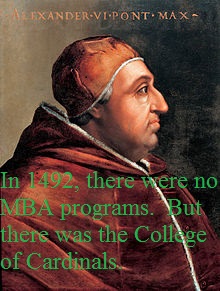
 The two candidates entered. Hillary Clinton wore a blue pants suit. The particular shade would be debated for the next three days. Azure sounds Arabic and was it yet another concession to Iran? Mr. Trump wore an orange thong–or at least people hoped so. The color matched his skin. In any case, he did have a codpiece, a very generous one resembling the Presidential seal.
The two candidates entered. Hillary Clinton wore a blue pants suit. The particular shade would be debated for the next three days. Azure sounds Arabic and was it yet another concession to Iran? Mr. Trump wore an orange thong–or at least people hoped so. The color matched his skin. In any case, he did have a codpiece, a very generous one resembling the Presidential seal.
Moderator Lester Holt began with an explanation of the debate but Mr. Trump interrupted…
Mr. Trump: Whatever, Les. No one is interested in what you have to say…or you either, Crooked Hillary. People wanna see just how beautifly Presidential I am.
Mr. Holt: Go ahead.
Mr. Trump: Yesterday I was reading the New York Times and there is something about C.S. Lewis. He and Dean Martin were just great. Now I understand that he is a Narnian-American. Great people, and when I am President, Narnia can count on me.
Mr. Holt: Madame Secretary.
Ms. Clinton: What does it matter? I will be compared to the White Witch. However, I must break the news that C.S. Lewis is dead.
Mr. Trump: Another victim of Obamacare!
Mrs. Clinton: No, he was gunned down by Wayne Lapierre.
Mr. Holt: Mrs. Clinton, according to Wikipedia, you are wrong.
Ms. Clinton: I was being ironic–and correctly using the term.
Mr. Trump: I’d cut off her mike. That’s what a real moderator would do.
Mr. Holt: You will just have to wait until you are back home on Fox. Mrs. Clinton, how is your approach to Russia different than Mr. Trump’s?
Ms. Clinton: First, there is the acknowledgement that the identity and role of Russia are adversarial to the West, a schism of 1200 years. Even within the Russian culture, compare the perspectives of Tolstoy and Dostoyevsky…
Mr. Trump: Booorrrringgggggg….
Ms. Clinton: Dumbing it down for Donald, I don’t think of Russia and the U.S. as Batman and Robin– and we should never be Robin!
Mr. Trump: I can deal with the Russians. The gulags? Just a little classy upgrades and they’d make beautiful Trump resorts. But let me tell you about my friend and admirer Vladimir Putin. We great men appreciate each other, and we can manage the world together–like Winston Churchill and George Washington.
Ms. Clinton: Just don’t tell him that Tchaikovsky was gay.
Mr. Holt: According to Wikipedia, that is correct.
Ms. Clinton: Why don’t you fact-check the historical anachronism of Churchill and Washington?
Mr. Holt: According to Wikipedia, you have correctly used the word anachronism. However, you have raised a question of double-standards. Of course, there are. You may be on the same stage as Mr. Trump, but it is two different shows. You are on “Jeopardy!” and he is on “Jackass”.
 ebruary 26, 1564: The Least Mysterious Thing About Christopher Marlowe
ebruary 26, 1564: The Least Mysterious Thing About Christopher Marlowe
 The two candidates entered. Hillary Clinton wore a blue pants suit. The particular shade would be debated for the next three days. Azure sounds Arabic and was it yet another concession to Iran? Mr. Trump wore an orange thong–or at least people hoped so. The color matched his skin. In any case, he did have a codpiece, a very generous one resembling the Presidential seal.
The two candidates entered. Hillary Clinton wore a blue pants suit. The particular shade would be debated for the next three days. Azure sounds Arabic and was it yet another concession to Iran? Mr. Trump wore an orange thong–or at least people hoped so. The color matched his skin. In any case, he did have a codpiece, a very generous one resembling the Presidential seal. On this day in A.D. 636 (if you lost) or A.H. 15 (if you didn’t)
On this day in A.D. 636 (if you lost) or A.H. 15 (if you didn’t) Donald Trump could have warned the College of Cardinals about cheap Hispanic labor. However, on this day in 1492, the College elected Roderigo Borja as Pope. Obviously, the Italian boys were not so eager to have the job. Their bribes were only half as much as Roderigo’s, and Roderigo was willing to assimilate. His mistresses were Italian, and he even adopted a more Italian pronunciation of his surname: Borgia. (But his green card would have identified him as Pope Alexander VI.)
Donald Trump could have warned the College of Cardinals about cheap Hispanic labor. However, on this day in 1492, the College elected Roderigo Borja as Pope. Obviously, the Italian boys were not so eager to have the job. Their bribes were only half as much as Roderigo’s, and Roderigo was willing to assimilate. His mistresses were Italian, and he even adopted a more Italian pronunciation of his surname: Borgia. (But his green card would have identified him as Pope Alexander VI.) On this day in 1929, Fascist Italy made a stand for linguistic purity and banned the use of foreign words.
On this day in 1929, Fascist Italy made a stand for linguistic purity and banned the use of foreign words.
 March 4th
March 4th